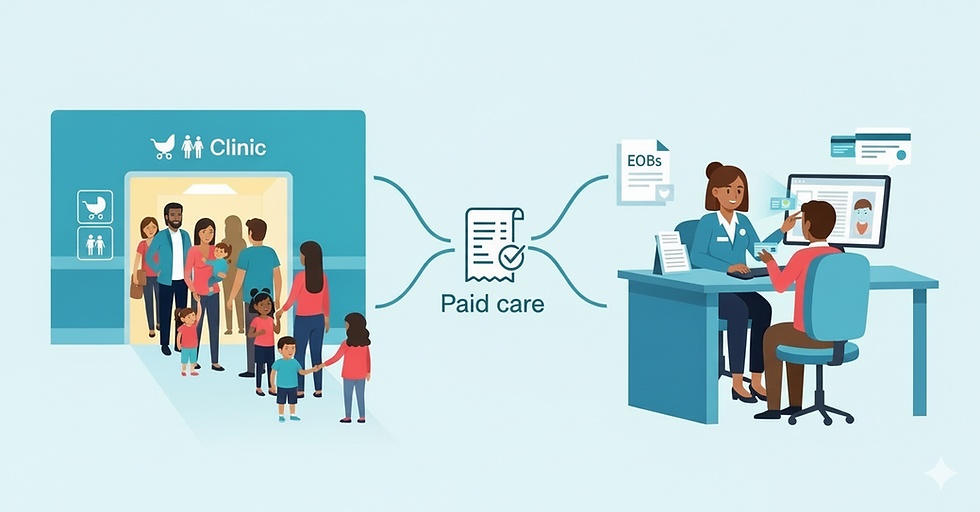Understanding Mental Health in America: Statistics, Challenges, and Solutions
- Nicholas Burt, LMFT

- Apr 9, 2024
- 3 min read
In the realm of healthcare, mental health often resides in the shadows, eclipsed by the prominence of physical health concerns. Yet, the prevalence of mental illness in the United States cannot be understated. It affects millions, permeating every demographic, yet treatment and awareness remain elusive for many. In this article, we delve into the stark statistics presented by reputable sources like the National Alliance on Mental Illness (NAMI) and recent findings from Mental Health America and the Centers for Disease Control and Prevention (CDC). We explore the challenges faced by individuals, families, communities, and the nation as a whole, shedding light on the importance of addressing mental health with the same urgency and resources as physical health.

The Scope of Mental Illness:
The statistics paint a vivid picture of the scope of mental illness in the U.S. Over 50 million American adults experience some form of mental illness annually, according to NAMI, with approximately 5% grappling with serious mental health issues. The impact isn't confined to adults; 1 in 6 children aged 6-17 face mental health disorders, a sobering reality emphasized by the fact that suicide ranks as the second-leading cause of death among children aged 10-14.
Diverse Challenges Across States:
The statistics diverge further when examining mental health across states. Utah grapples with the highest rate of mental illness, while Hawaii stands out with both the highest rate of untreated mental health issues and the lowest rate of self-reported depression. Yet, these disparities underscore a nationwide issue—over half of adults with mental illness go untreated, with cost being the primary barrier.
The Financial Hurdle:
Indeed, financial constraints prevent many from seeking the care they need. A significant portion of individuals cite affordability as a reason for not accessing mental health services. This issue persists despite provisions such as those under the Affordable Care Act, which mandate coverage for mental health services in most health insurance plans.
This is where Bridgeway Billing aims to help providers and patients leverage insurance benefits. Treatment can be costly, and insurance doesn't want to pay. It helps to have a team of experts on your side, to fight the battle for you.
Unaddressed Concerns:
The consequences of untreated mental illness reverberate through society. Suicide claims tens of thousands of lives annually, with certain states facing disproportionately high rates. The impact isn't confined to adults; childhood depression rates are alarming, highlighting the need for early intervention and support.
Mental Health in the Justice System and Rural America:
Moreover, the criminal justice system is inundated with individuals suffering from mental illness, emphasizing the need for diversionary tactics and increased investment in mental health care. Rural communities face unique challenges, including limited access to care due to geographical barriers and inadequate resources.
Moving Towards Solutions:
Amidst these challenges, there's room for hope. Increased awareness, destigmatization efforts, and policy reforms can pave the way for a brighter future. By prioritizing mental health on par with physical health, we can foster a society where individuals feel empowered to seek help without fear of judgment or financial strain.
The statistics on mental health in America are not just numbers; they represent millions of lives touched by the invisible burden of mental illness. Addressing this crisis requires a multifaceted approach—investment in accessible and affordable care, destigmatization efforts, and community support networks. As we navigate these challenges, let us remember that behind each statistic lies a story, a struggle, and the potential for resilience and recovery. It's time to shine a spotlight on mental health and ensure that no one suffers in silence.




Comments